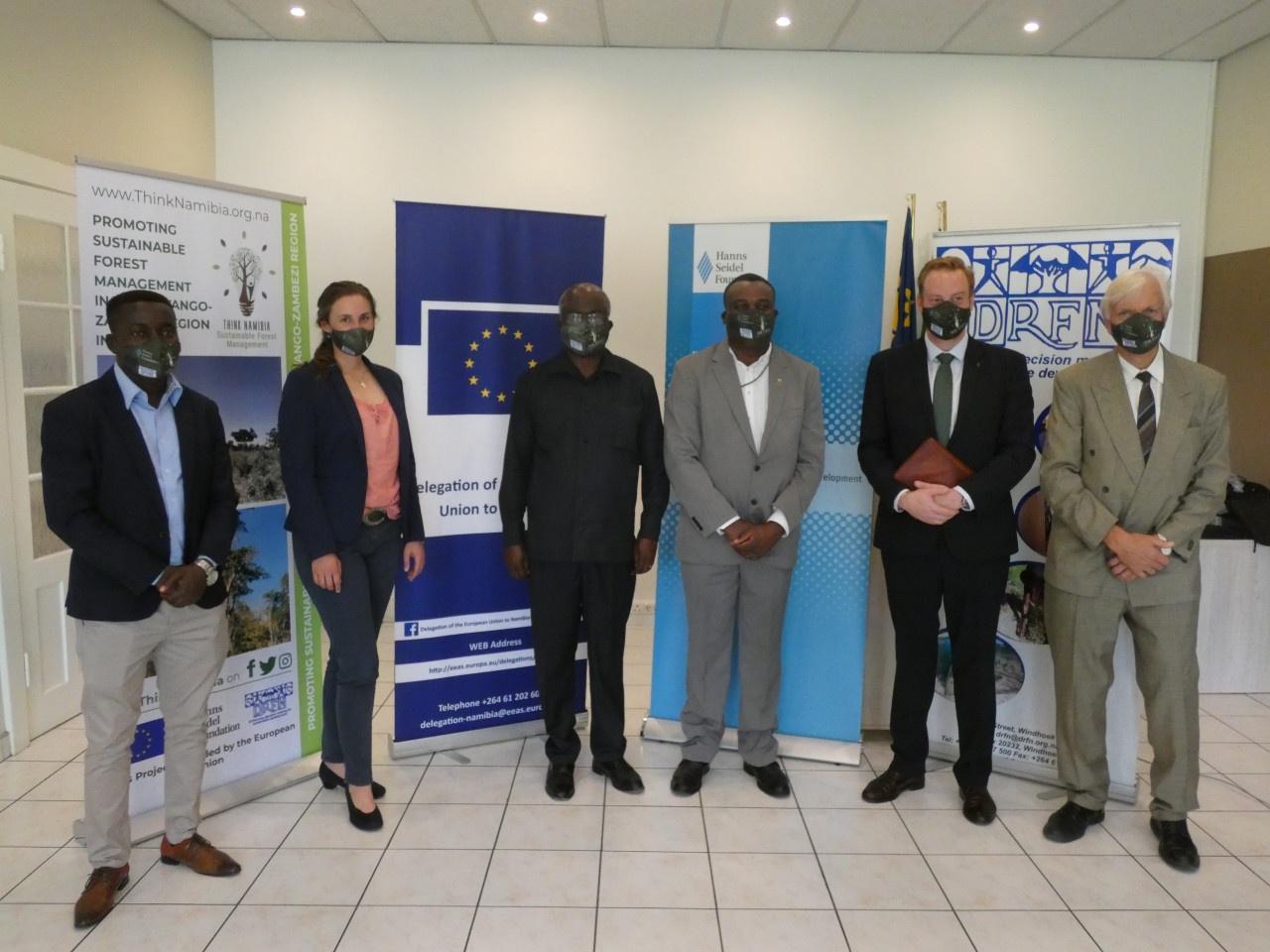Promoting Sustainable Forest Management in the Kavango-Zambezi-Region in Namibia’ Project Officially Launches at the House of Democracy
On 11 February 2021, The Hanns Seidel Foundation (HSF) Namibia in collaboration with the Desert Research Foundation of Namibia (DRFN) officially launched the European Union (EU)-funded ‘Promoting Sustainable Forest Management in the Kavango-Zambezi-Regions in Namibia’ (NSFM) Project at a public event held at the House of Democracy in Windhoek. The NSFM-Project, with a planned implementation period spanning from October 2020 to September 2023, seeks to introduce the concept of sustainable forest management (SFM) and expand awareness of its benefits by building local knowledge, skills and capacities and fostering tolerance and appreciation for diverging views surrounding the issue of SFM.
The aim of the launch event was to introduce the NSFM-Project to its various stakeholders by outlining both the status quo and the Project’s objectives with regard to forest management. Moderated by Dr Clemens von Doderer, Resident Representative of the HSF, the launch comprised informative presentations and critical commentary from various speakers as well as a Q&A session. While a number of core stakeholders attended the socially distanced event in person, the public was invited to attend the launch online in keeping with government guidelines limiting the size of public gatherings to reduce the spread of Covid-19 in Namibia.
During her welcoming remarks, H.E. Sinikka Antila, Ambassador of the Delegation of the European Union to Namibia, emphasised the great importance the EU places upon the conservation of forest resources worldwide, citing in particular its efforts to “support many developing countries in preserving their forests to contribute to their sustainable, inclusive development”. The Ambassador also highlighted the EU’s objective “to work towards improved forest governance and law enforcement and, ultimately, the sustainable management of the world’s forests” which will in turn, “support the eradication of poverty, contribute to inclusive development and [help] fight climate change”.
The NSFM-Project comprises part of the EU’s ‘Enhancing Participatory Democracy in Namibia’ (EPDN) programme which aims to support in the achievement of Namibia’s national development goals in terms of education, skills, and rural development. In the final word, the Ambassador expressed the EU’s hope that the NSFM-Project will “yield tangible results and assist affected communities to manage their resources sustainably”, thereby “improving their livelihoods in the long-term”.
When you subscribe to the blog, we will send you an e-mail when there are new updates on the site so you wouldn't miss them.
